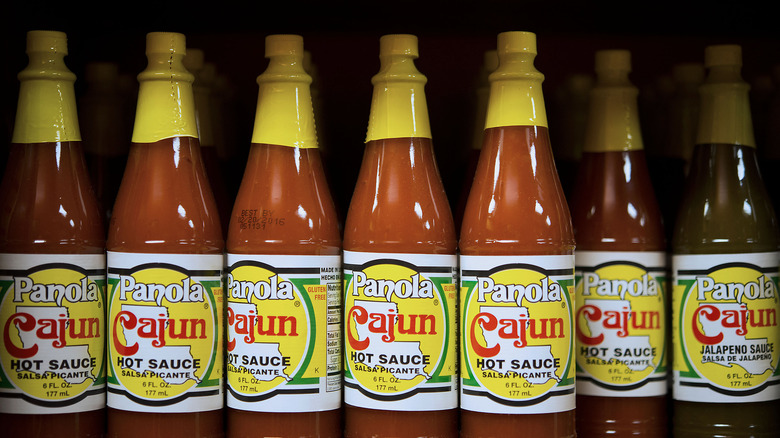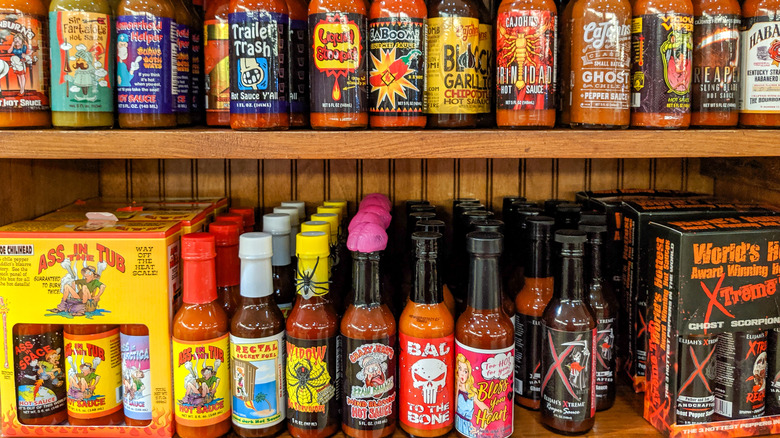Do You Really Need To Refrigerate Hot Sauce?
It may feel like second nature to keep your sauces and condiments in the refrigerator, but while some things like honey and olive oil can be damaged by repeated trips in and out of the fridge, others simply don't need it. One of those products which is unnecessary to keep cold is hot sauce. While this might feel obvious or ironic once you hear it, Southern Living notes that many people make this mistake out of habit or because their parents did it.
Putting any kind of perishable food in the refrigerator once it's open feels like it makes sense, however, as Today reports, there are a fair number of products which don't need to be kept constantly cold. Unlike dairy-based condiments like mayonnaise and citrus-based dressings like vinaigrettes, products which contain high content of salt or vinegar (or in the case of many hot sauces, both) don't usually need to be refrigerated. That's because, as Pepper Scale notes, those ingredients, combined with the concentrated pepper are enough to keep bacteria from forming and won't spoil, giving most hot sauces a fairly stable shelf-life.
There are some instances when refrigeration is helpful
So how long does hot sauce last unrefrigerated? That answer depends on the type of sauce and the brand you're buying. Southern Living reports that the longevity of hot sauces ranges from the fairly short, six-month enjoyment window for Cholula hot sauce, to the absurdly long five-year shelf-life of Louisiana hot sauce. My Recipes notes however that there are advantages to keeping your hot sauce in the refrigerator if you're the type of person who can make a single bottle last for two to five years. For one, the sauce will look better, as the condiment's natural color will likely fade over time, but also because keeping most things refrigerated will extend their freshness, even if they have a long shelf-life to begin with. Additionally, Pepper Scale explains that if a hot sauce is oil-based instead of vinegar-based or homemade, it must be kept in the refrigerator to avoid the risk of food poisoning.
If you are sticking to a vinegar-based hot sauce though, and you aren't stingy with using it, there is no reason you should have a problem leaving your condiments in the pantry or out on the table like so many restaurants do. It prevents the unpleasant situation of pouring cold liquid on an otherwise hot meal, and, as Food Network reports, the hot flavor of the peppers in the sauce is more potent at room temperature.

